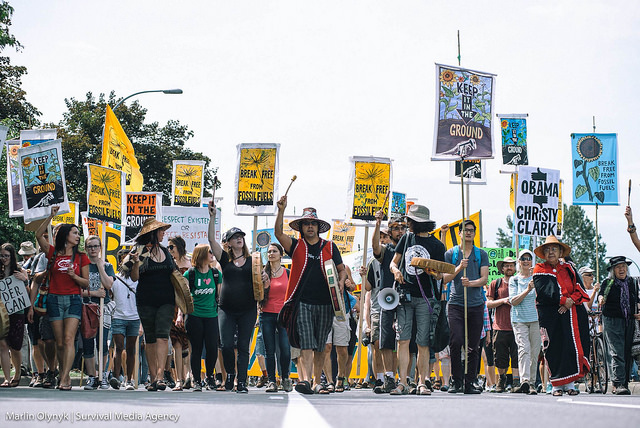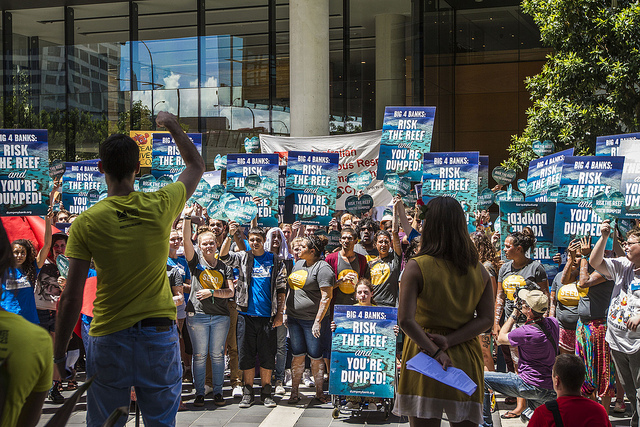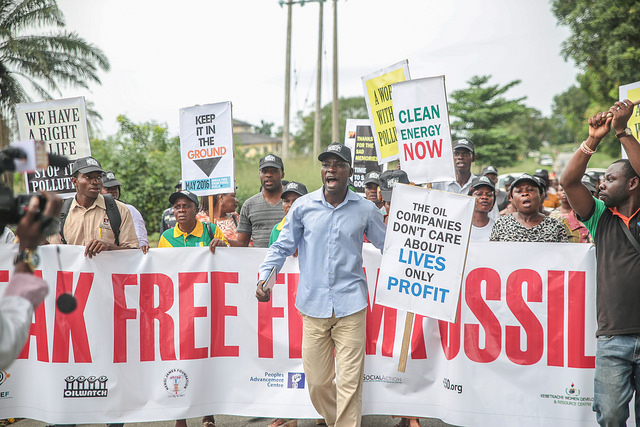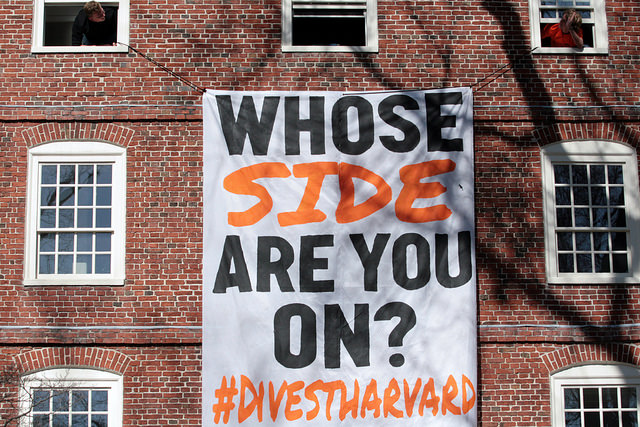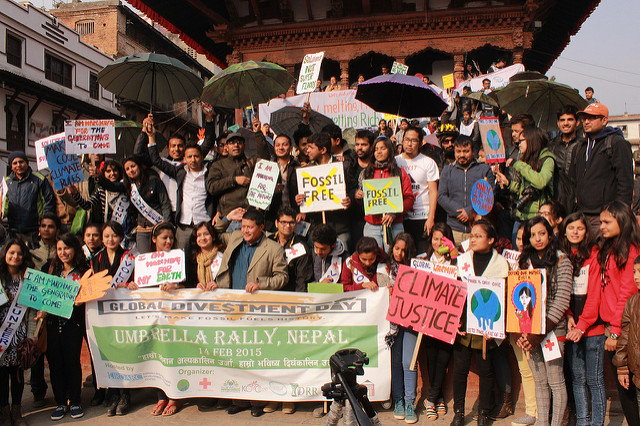We tend to think that power lies with the people at the top. That it’s the big decision makers that rule the world. It’s a story we’re being told every day in the news with their focus on high-level power brokers. In this conventional view of power, Abraham Lincoln abolished slavery, high court judges legalised same-sex marriage and Angela Merkel pulled the plug on nuclear power.
These stories distort the truth that the biggest social changes we’ve seen in the past couple hundreds of years have been achieved by social movements. The efforts of suffragettes in the UK, the anti-nuclear movement in Germany, the civil rights movement and the LGBTQ movements ultimately left decision makers with no choice but to act.
Pulling the pillars of support
In this social view of power, the power of those at the top is dependent on many pillars of support. If these pillars are removed, they lose their power (Here’s a fascinating example of how the pillars analysis was used to overthrow Slobadan Milosevic in Serbia).
A dictator is the ultimate example of a monolithic power-holder but still requires the support of the military and security forces. They still rely on people to cooperate in day-to-day life to maintain a somewhat functioning economy. They still need key institutions like the media, the education system or religious institutions that influence popular opinion to obey within the system.

In the traditional view of power, campaigners need to appeal to decision makers to change policies, pass legislation, or make whatever concessions might be seen as politically possible at a given time.
This path alone won’t get us the fundamental transformation of our economy we need to prevent irreversible climatic upheavals. As long as our political processes are co-opted by the fossil fuel lobby, governments won’t constrain them in their climate-destroying operations.
That is why the Fossil Free campaign aims to erode the institutional pillars propping up the fossil fuel industry driving the climate crisis. If we succeed, we will topple the most powerful actor currently blocking climate action.
Overthrowing the most powerful industry in history
Fossil fuel companies have arguably become the most powerful corporations in history. But their power is dependent on being seen as legitimate actors in our society.
There’s a reason why they invest millions and billions to maintain a respectable brand image through advertising and sponsorship deals.
- They need to be able to recruit and keep qualified workers.
- They rely on workers and sometimes the state police or even the military to cooperate to keep their operations going.
- They need to have access to and influence over academic research, specific knowledge and expertise.
- They need permits from various levels of government and courts.
- They need investors and have to be able to get loans.
- They need insurance companies to back their projects.
- They rely on suppliers and business partners.
…. They need enough public acceptance to maintain a favourable legal and political framework that allows them to pollute our atmosphere unrestricted and for free, while harming our health, destroying our environment and trampling on human rights.
If governments withdrew the billions of dollars of subsidies the industry enjoys, fossil fuel companies could by now barely survive.
The more people see that the rogue business model of the fossil fuel industry for what it is – one which relies on destroying the climate and environment to achieve profit, the harder it will be for them to keep drawing on the support they need.
The fossil fuel industry knows this. Just recently, Shell CEO Ben van Beurden said that waning public acceptance was the biggest challenge his company faces. The chief executive of Total, Patrick Pouyanné also recently complained that oil and gas companies were ‘accused of being the villains’ and that investments in renewables were a tool to ‘make [the] oil and gas business acceptable’. (He was quick to note that these only made up a fraction of their investments and reasserting that Total was an oil and gas company.)

Our pathway to transformation, winning over popular opinion
Instead of trying to use institutional influence to achieve incremental gains, a transformational approach aims to move the broader public on an issue to make much bigger changes possible than what may seem politically feasible at a given point in time.
When the public debate has shifted, enough people sympathise and lend their support to the cause, and a strong movement of people builds enough sustained pressure for change, decision makers will find themselves with no choice but to catch up.
The success of this pathway to change relies on stories, wins and demands that bring the moral urgency to address an injustice into the public spotlight. Immediate impacts on policy or actual enforceability can be less important on this trajectory than the symbolic value of achievements. In that sense, divestment commitments are less about money being moved but the symbolic value of institutions distancing themselves from the industry.
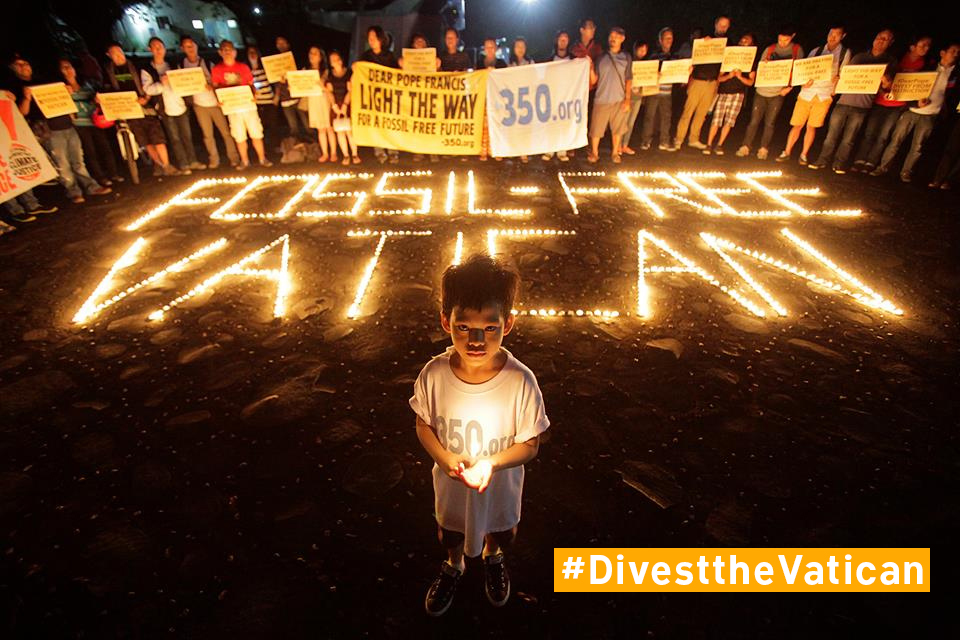
Instrumental gains are important to build and keep momentum going (speaking of momentum, check out how much we have achieved already). However, the success of the Fossil Free campaign depends on how successful we are in swaying public opinion and growing stronger as a movement.
Whether or not an institution divests, we achieve our goals when campaigns successfully create public battles that win over public opinion and weaken acceptance of the industry.
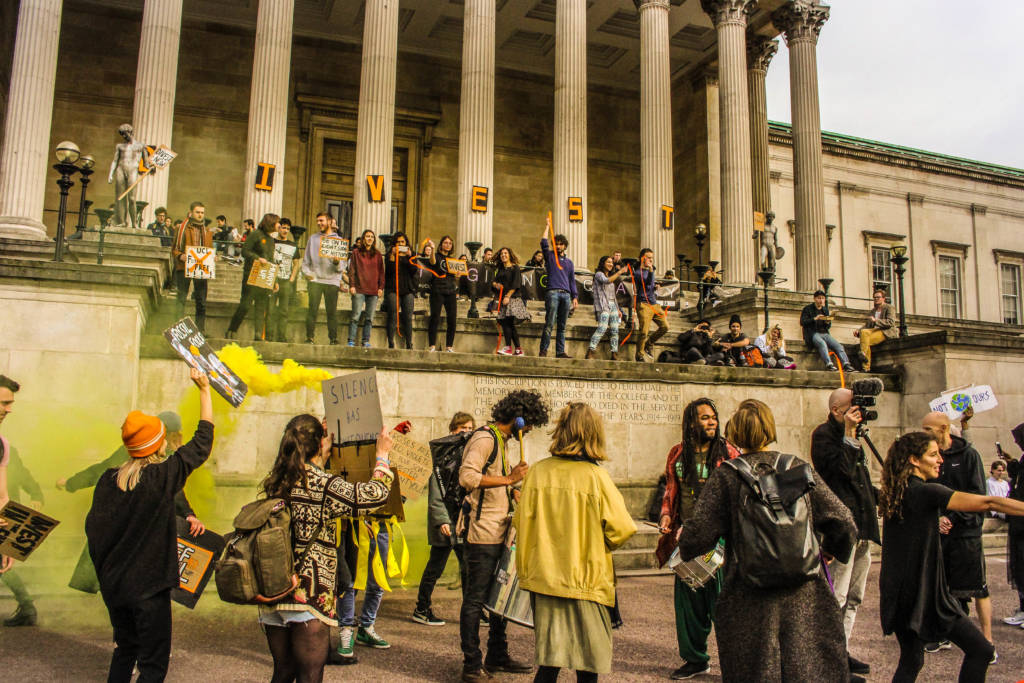
When students at UCL in London escalate actions on campus highlighting the conflict between the university’s research and its investments, and exposing the close connections of university council members to fossil fuel companies; when pressure from scientists, climate activists and museum employees force oil mogul David Koch to step down from the board of New York’s American Museum of Natural History; when the City of Cape Town comes under pressure to divest from the companies at the root of the city’s water crisis; when Nobel Prize winners urge the prestigious Nobel Foundation to cut their financial ties to fossil fuel companies, we have exactly the kind of impact we aim for with the Fossil Free campaign.
Lessons from history
Transformational change rarely happens in a linear way. The status quo can seem untouched for a long time while the pillars of support upholding it start to crumble. When a campaign reaches a tipping point, the system can seemingly all of a sudden collapse.
Many social movements we look back on as being hugely successful, have for the longest time had very little instrumental achievements like big policy or legislative changes to show for. It is in fact not unusual for social movements to go through a stage where they feel they are failing before they actually win, as Bill Moyer’s analysis of movements shows.
Sometimes they experience big set-backs, for example when the movement reaches a point of polarisation where public opinion really moves and opposition is fighting back hard. For example, under lobbying pressure from the industry the Merkel government had reversed a previous decision to phase out nuclear power only months before the Fukushima nuclear disaster. The event triggered such a fierce push from the anti-nuclear movement with strong backing from the broader public that it left Merkel with no choice but to stand up to the nuclear industry in a political U-turn.
The Fossil Free campaign is just one part of the global movement for climate justice. We’re up against powerful actors that won’t give up their influence without a fight. We’ve experienced set-backs and should prepare for more. Just know that as long as we weaken acceptance for the industry and keep escalating pressure, we’re on the right track and gaining strength. This is how we win.
